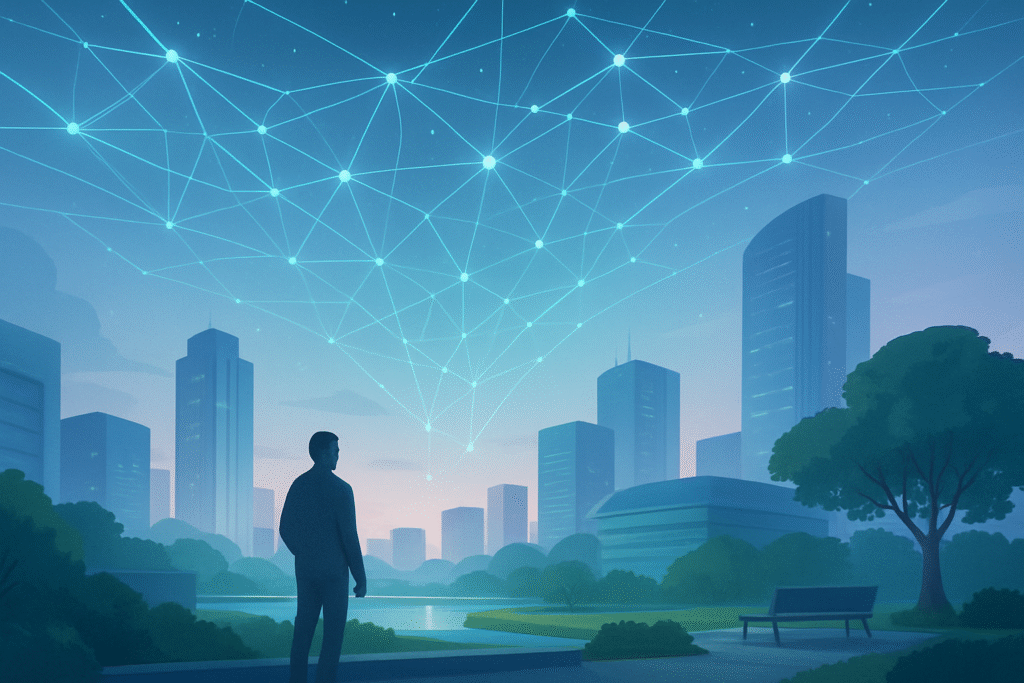
The long-held dream of a three-day work week is rapidly transitioning from a utopian fantasy to a tangible near-future, thanks to the accelerating advancements in Artificial Intelligence. Echoing the foresight of tech luminaries like Bill Gates, a prominent sports billionaire recently predicted that AI is poised to fundamentally redefine our relationship with labor, ushering in an era where enhanced work-life balance is not a luxury, but a standard. This optimistic outlook suggests that AI will not displace humanity into idleness, but rather liberate us to pursue richer, more fulfilling lives alongside unprecedented productivity.
This vision, once confined to the realm of science fiction, is gaining significant traction among industry leaders and economists. The core premise is that AI's ability to automate, optimize, and innovate across virtually every sector will dramatically compress the time required to complete tasks, allowing for the same or even greater output in a significantly shorter work week. This isn't merely about incremental efficiency gains; it's about a paradigm shift in how value is created and how human capital is deployed, promising a future where leisure and personal development are elevated without sacrificing economic prosperity.
The Technical Backbone: How AI Powers a Shorter Work Week
The technical underpinnings of an AI-driven three-day work week are rooted in the rapid evolution of generative AI, advanced automation, and intelligent workflow orchestration. These technologies are enabling machines to perform tasks that were once exclusively human domains, ranging from routine administrative duties to complex analytical and creative processes.
Specific advancements include sophisticated large language models (LLMs) that can draft reports, generate code, summarize vast datasets, and even manage communications with remarkable accuracy and speed. Computer vision systems are automating quality control, inventory management, and even intricate manufacturing processes. Robotic process automation (RPA) combined with AI is streamlining back-office operations, handling data entry, invoice processing, and customer service inquiries with minimal human intervention. Furthermore, AI-powered predictive analytics can optimize resource allocation, forecast demand, and preemptively identify operational bottlenecks, leading to unprecedented levels of efficiency across organizations. This differs significantly from previous automation efforts, which often focused on repetitive, rule-based tasks. Modern AI, particularly generative AI, can handle nuanced, context-dependent, and even creative tasks, making it capable of augmenting or even replacing a much broader spectrum of human labor. Initial reactions from the AI research community and industry experts are largely positive, with many acknowledging the transformative potential while also emphasizing the need for ethical development and thoughtful societal adaptation. Researchers are particularly excited about AI's role in creating "super-employees" who can leverage AI tools to achieve output levels previously thought impossible for an individual.
Competitive Implications and Market Shifts in the AI Landscape
The advent of AI-enabled shorter work weeks carries profound competitive implications for AI companies, tech giants, and startups alike. Companies that successfully integrate AI to boost productivity and offer enhanced work-life balance will gain significant strategic advantages in attracting and retaining top talent.
Tech giants like Microsoft (NASDAQ: MSFT), Google (NASDAQ: GOOGL), and Amazon (NASDAQ: AMZN) stand to benefit immensely, as they are at the forefront of developing the foundational AI models and platforms that enable these shifts. Their cloud services (Azure, Google Cloud, AWS) will become even more critical infrastructure for businesses adopting AI at scale. Companies specializing in AI-powered workflow automation, such as UiPath (NYSE: PATH) or ServiceNow (NYSE: NOW), and those developing advanced generative AI tools, will see a surge in demand for their products. Startups focusing on niche AI applications for specific industries or developing innovative AI agents for task management are also poised for rapid growth. The competitive landscape will intensify, pushing companies to not only develop powerful AI but also to integrate it seamlessly into existing workflows, ensuring ease of use and measurable productivity gains. Traditional software companies that fail to embed AI deeply into their offerings risk disruption, as AI-native solutions will offer superior efficiency and capabilities, potentially rendering older products obsolete. Market positioning will increasingly hinge on a company's ability to demonstrate how their AI solutions directly contribute to a more productive, yet less demanding, work environment.
The Wider Significance: A Societal and Economic Transformation
The potential for AI to usher in a three-day work week extends far beyond mere corporate efficiency; it represents a profound societal and economic transformation. This development fits squarely within the broader trend of AI moving from a specialized tool to a ubiquitous, transformative force across all aspects of life.
The impacts could be revolutionary: a significant improvement in public health and well-being due to reduced stress and increased leisure time, a revitalization of local communities as people have more time for civic engagement, and a boom in leisure and entertainment industries. However, potential concerns also loom large. The transition could exacerbate income inequality if the benefits of AI-driven productivity are not broadly distributed, leading to a widening gap between those whose jobs are augmented and those whose jobs are automated away without adequate reskilling or social safety nets. Ethical considerations around AI's decision-making, bias, and surveillance in the workplace will also become more pressing. Comparisons to previous industrial revolutions are apt; just as mechanization shifted labor from agriculture to manufacturing, and computing shifted it to information services, AI promises another fundamental reordering of work. Unlike previous shifts, however, AI's speed and pervasive nature suggest a more rapid and potentially more disruptive transition, demanding proactive policy-making and societal adaptation to ensure an equitable and beneficial outcome for all.
Future Developments: The Road Ahead for AI and Labor
Looking ahead, the trajectory of AI's integration into the workforce suggests several near-term and long-term developments. In the near term, we can expect a continued proliferation of specialized AI co-pilots and assistants across various professional domains, from coding and design to legal research and medical diagnostics. These tools will become increasingly sophisticated, capable of handling more complex tasks autonomously or with minimal human oversight.
Potential applications on the horizon include highly personalized AI tutors and mentors that can rapidly upskill workers for new roles, AI-driven personal assistants that manage individual schedules and tasks across work and personal life, and advanced simulation environments where AI can test and optimize business strategies before real-world implementation. The primary challenges that need to be addressed include developing robust and ethical AI governance frameworks, investing heavily in reskilling and education programs to prepare the workforce for AI-augmented roles, and designing new economic models that can accommodate a future with potentially less traditional full-time employment. Experts predict that the next decade will be characterized by a significant redefinition of "work" itself, with a greater emphasis on creative problem-solving, critical thinking, and human-centric skills that AI cannot easily replicate. The focus will shift from hours worked to value generated.
Wrap-Up: A New Chapter in Human-AI Collaboration
In summary, the prediction of an AI-driven three-day work week marks a significant milestone in the ongoing narrative of artificial intelligence. It underscores AI's transformative potential not just for corporate bottom lines, but for the fundamental human experience of work and life. The key takeaways are clear: AI is poised to drastically enhance productivity, enabling unprecedented levels of efficiency and freeing up human time for leisure, personal growth, and societal contribution. This development represents a pivotal moment in AI history, signaling a shift from AI as a mere tool to AI as a catalyst for a restructured society.
The long-term impact could be a re-evaluation of societal values, placing a greater emphasis on well-being and creative pursuits over relentless labor. However, achieving this positive future will require careful navigation of challenges related to job displacement, economic equity, and ethical AI deployment. In the coming weeks and months, watch for continued announcements from major tech companies regarding new AI products and services designed to boost enterprise productivity. Also, pay close attention to policy discussions around universal basic income, workforce retraining initiatives, and regulations designed to ensure the equitable distribution of AI's benefits. The journey to a three-day work week is not just a technological one; it's a societal one that demands collective foresight and collaborative action.
This content is intended for informational purposes only and represents analysis of current AI developments.
TokenRing AI delivers enterprise-grade solutions for multi-agent AI workflow orchestration, AI-powered development tools, and seamless remote collaboration platforms.
For more information, visit https://www.tokenring.ai/.





